Hardware Architecture
Filter by
SubjectRequired *
LanguageRequired *
The language used throughout the course, in both instruction and assessments.
Learning ProductRequired *
LevelRequired *
DurationRequired *
SubtitlesRequired *
EducatorRequired *
Results for "hardware architecture"
 Status: PreviewPreviewU
Status: PreviewPreviewUUniversitat Autònoma de Barcelona
Skills you'll gain: Computer Architecture, Hardware Architecture, System Design and Implementation, Embedded Systems, Application Specific Integrated Circuits, Digital Design, Design Software, Computer Hardware, Verification And Validation, Simulations
4.3·Rating, 4.3 out of 5 stars849 reviewsIntermediate · Course · 1 - 3 Months
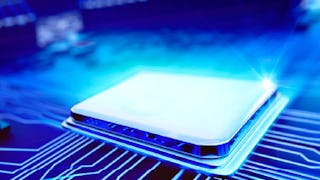 Status: Free TrialFree Trial
Status: Free TrialFree TrialSkills you'll gain: Embedded Software, Performance Tuning, System Programming, Software Development Tools, Embedded Systems, Microarchitecture, Software Development, Development Environment, Hardware Architecture, Debugging, Application Security, Secure Coding, Computer Architecture, C (Programming Language), System Configuration, Application Development, C++ (Programming Language), System Requirements, Product Support
4.6·Rating, 4.6 out of 5 stars197 reviewsIntermediate · Specialization · 3 - 6 Months
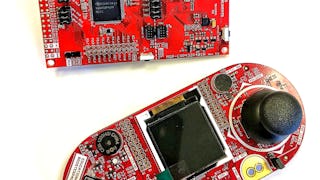 U
UUniversity of Colorado Boulder
Skills you'll gain: Embedded Software, Embedded Systems, Debugging, Data Structures, System Programming, Microarchitecture, C (Programming Language), Hardware Architecture, Computer Architecture, Integrated Development Environments, Software Design, Maintainability, System Configuration, Development Environment, Peripheral Devices
4.5·Rating, 4.5 out of 5 stars526 reviewsIntermediate · Course · 1 - 4 Weeks
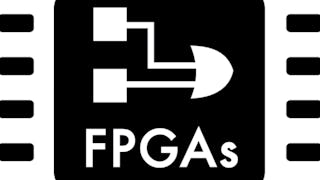 Status: Free TrialFree TrialU
Status: Free TrialFree TrialUUniversity of Colorado Boulder
Skills you'll gain: Field-Programmable Gate Array (FPGA), Hardware Design, Electronic Systems, Embedded Systems, Electronics Engineering, Eclipse (Software), Application Specific Integrated Circuits, Electronic Hardware, Technical Design, Electronics, Electrical and Computer Engineering, Test Case, Program Development, Integrated Development Environments, System Design and Implementation, Computer Architecture, Hardware Architecture, Software Development, Verification And Validation, Embedded Software
Build toward a degree
4.5·Rating, 4.5 out of 5 stars1.7K reviewsIntermediate · Specialization · 3 - 6 Months
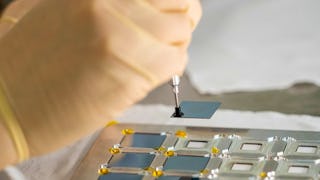 Status: Free TrialFree TrialA
Status: Free TrialFree TrialAArizona State University
Skills you'll gain: Statistical Process Controls, Process Control, Semiconductors, Quality Assurance, Verification And Validation, Electronics Engineering, Manufacturing Operations, Manufacturing Processes, Electronics, Process Improvement, Process Analysis, Product Testing, Reliability, Electronic Components, Electronic Systems, Computer Hardware, Computer Architecture, Hardware Architecture, Thermal Management, Scalability
4.7·Rating, 4.7 out of 5 stars235 reviewsBeginner · Specialization · 3 - 6 Months
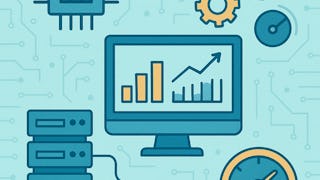 Status: NewNewStatus: PreviewPreviewB
Status: NewNewStatus: PreviewPreviewBBirla Institute of Technology & Science, Pilani
Skills you'll gain: Computer Architecture, Hardware Architecture, Computer Systems, Hardware Design, System Programming, File Systems, Cloud Platforms
Intermediate · Course · 1 - 3 Months
What brings you to Coursera today?
 Status: Free TrialFree Trial
Status: Free TrialFree TrialSkills you'll gain: Embedded Systems, Embedded Software, Electronic Systems, Computer Systems, Internet Of Things, Automation, System Programming, Control Systems, C (Programming Language), Programmable Logic Controllers, Hardware Architecture, Power Electronics, Peripheral Devices, Wireless Networks, Medical Devices, Electrical Systems, Computer Architecture, Health Technology, Electronics, Maintenance, Repair, and Facility Services
4.3·Rating, 4.3 out of 5 stars15 reviewsIntermediate · Specialization · 3 - 6 Months
 Status: NewNewStatus: PreviewPreview
Status: NewNewStatus: PreviewPreviewSkills you'll gain: Microarchitecture, Computer Architecture, Simulation and Simulation Software, Hardware Design, Hardware Architecture, Electronics Engineering, Electronic Hardware, Electronics, Computer Hardware, Performance Tuning
Intermediate · Course · 1 - 3 Months
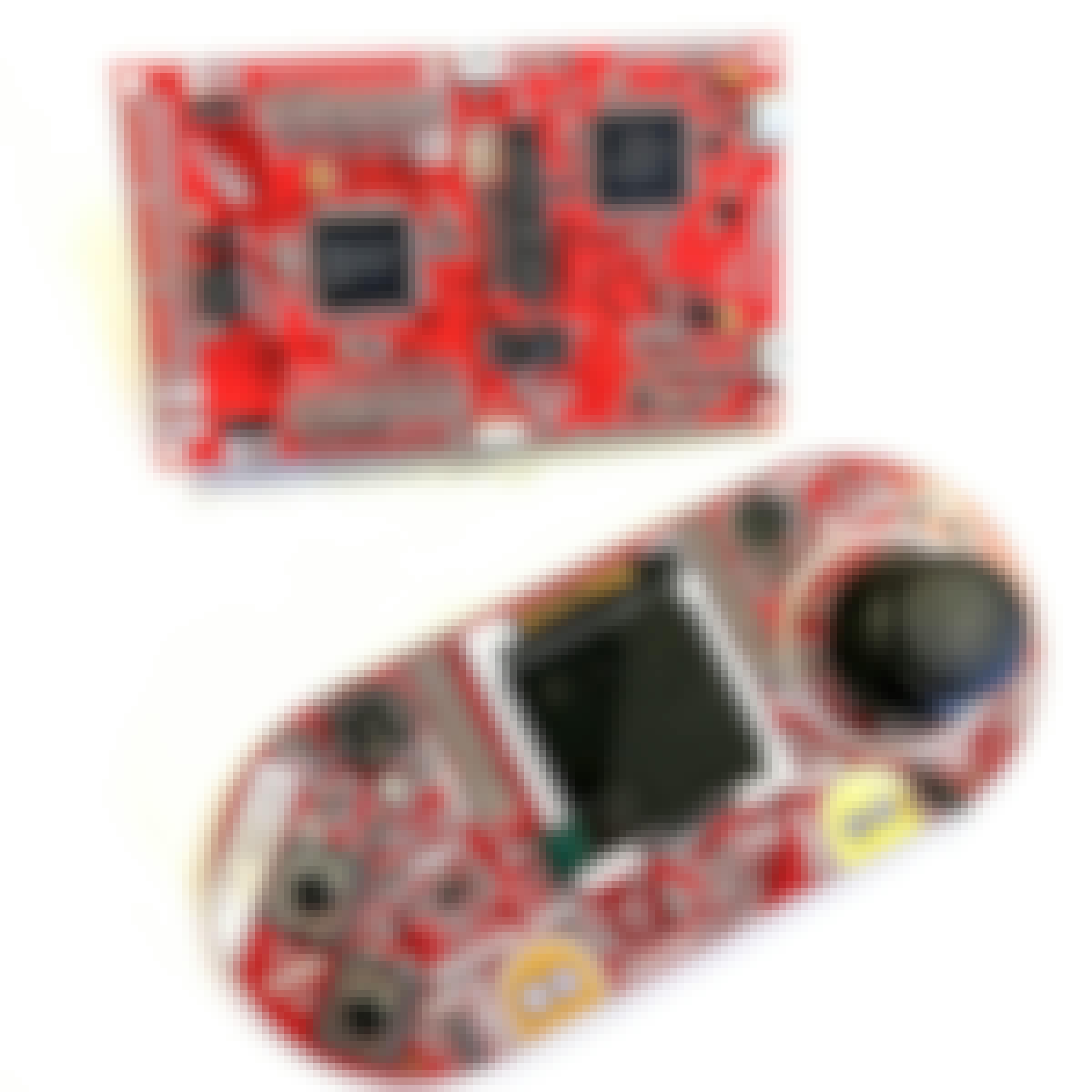 U
UUniversity of Colorado Boulder
Skills you'll gain: Software Configuration Management, Embedded Software, Embedded Systems, Git (Version Control System), Version Control, Build Tools, Software Development Tools, C (Programming Language), Development Environment, Program Development, Software Design, Hardware Architecture, Debugging, Command-Line Interface
4.5·Rating, 4.5 out of 5 stars643 reviewsIntermediate · Course · 1 - 4 Weeks
 Status: Free TrialFree Trial
Status: Free TrialFree TrialSkills you'll gain: Embedded Software, C (Programming Language), Embedded Systems, Debugging, Peripheral Devices, Integrated Development Environments, Development Environment, Electronic Hardware, System Programming, Electronics, Software Development Tools, Program Development, Hardware Architecture, Data Structures, Microarchitecture, System Configuration, Programming Principles, Performance Tuning, Computer Architecture, Computer Programming
4.4·Rating, 4.4 out of 5 stars230 reviewsIntermediate · Specialization · 3 - 6 Months
 Status: NewNewStatus: Free TrialFree Trial
Status: NewNewStatus: Free TrialFree TrialSkills you'll gain: Network Troubleshooting, Hardware Troubleshooting, Cloud Computing, Cloud Infrastructure, Virtualization, Computer Hardware, Network Protocols, Cloud Platforms, Virtual Machines, General Networking, Network Administration, Network Security, Desktop Support, Hardware Architecture, TCP/IP, Peripheral Devices, Wireless Networks, Mobile Security, USB, Networking Hardware
Intermediate · Specialization · 1 - 3 Months
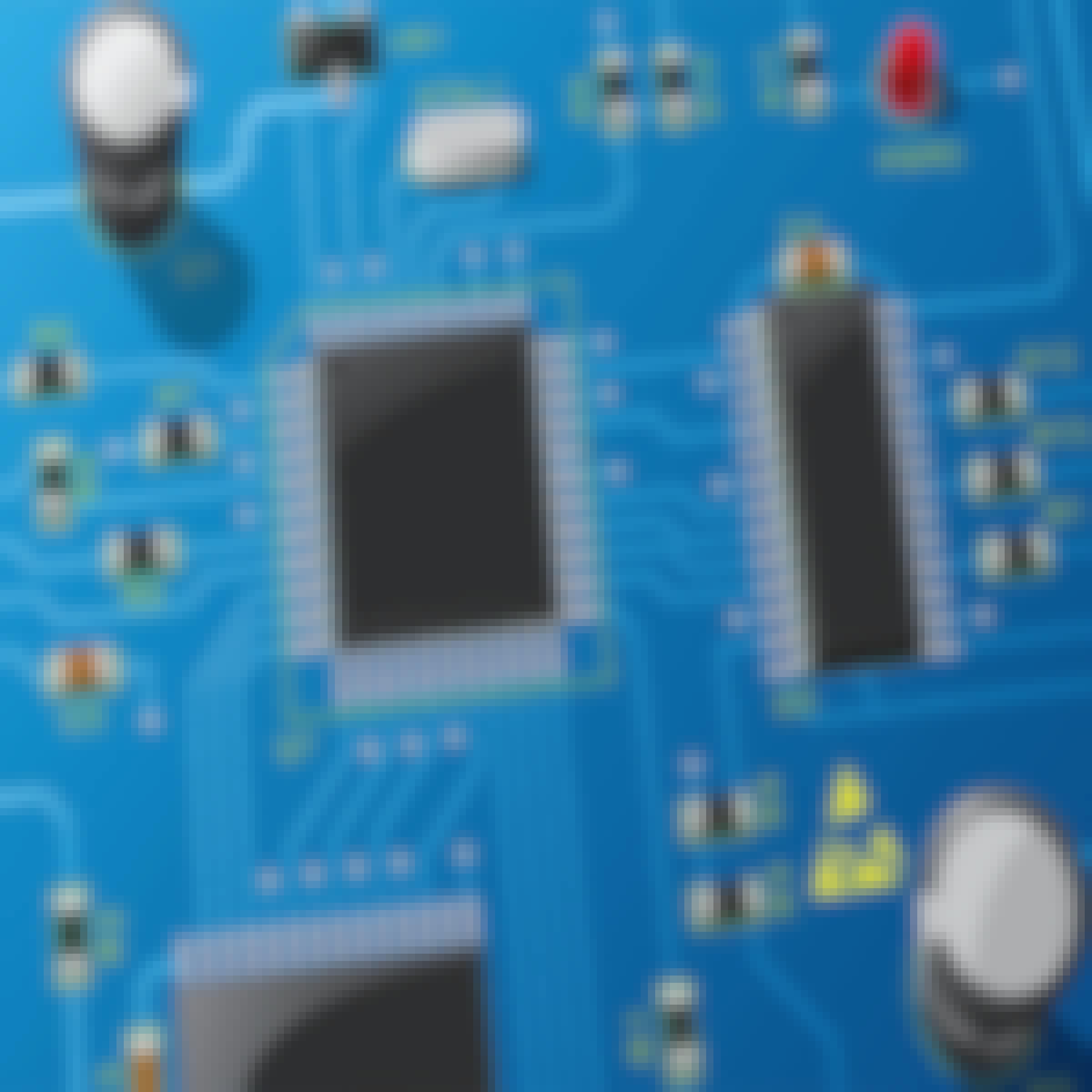 Status: FreeFreeP
Status: FreeFreePPrinceton University
Skills you'll gain: Microarchitecture, Computer Architecture, Hardware Architecture, Computer Systems, Computer Engineering, Systems Architecture, Operating Systems, Performance Tuning, Scalability
4.7·Rating, 4.7 out of 5 stars3.7K reviewsAdvanced · Course · 3 - 6 Months
Most popular
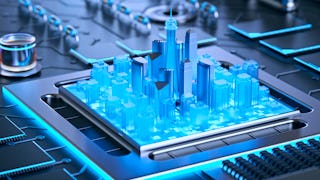 Status: Free TrialFree Trial
Status: Free TrialFree TrialCourse
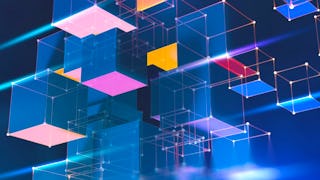 Status: PreviewPreview
Status: PreviewPreviewCourse
 Status: Free TrialFree TrialP
Status: Free TrialFree TrialPPolitecnico di Milano
Specialization
 Status: Free TrialFree TrialU
Status: Free TrialFree TrialUUniversity of California, Irvine
Specialization
Trending now
 Status: Free TrialFree TrialP
Status: Free TrialFree TrialPPolitecnico di Milano
Specialization
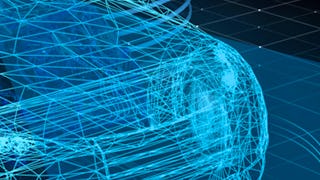 Status: Free TrialFree TrialU
Status: Free TrialFree TrialUUniversity of Toronto
Specialization
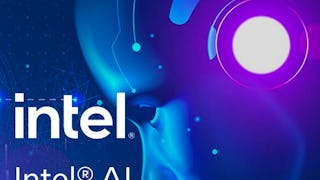 Status: Free TrialFree TrialI
Status: Free TrialFree TrialIIntel
Specialization
 Status: Free TrialFree TrialU
Status: Free TrialFree TrialUUniversity of Colorado Boulder
Build toward a degree
Specialization
New releases
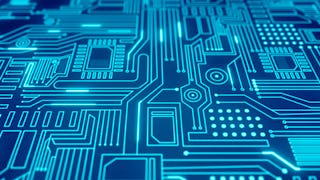 Status: PreviewPreview
Status: PreviewPreviewCourse
 Status: PreviewPreviewB
Status: PreviewPreviewBBirla Institute of Technology & Science, Pilani
Course
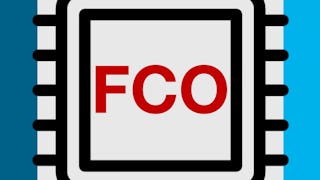 Status: PreviewPreviewI
Status: PreviewPreviewIInternational Institute of Information Technology, Hyderabad
Course
 Status: Free TrialFree Trial
Status: Free TrialFree TrialSpecialization







